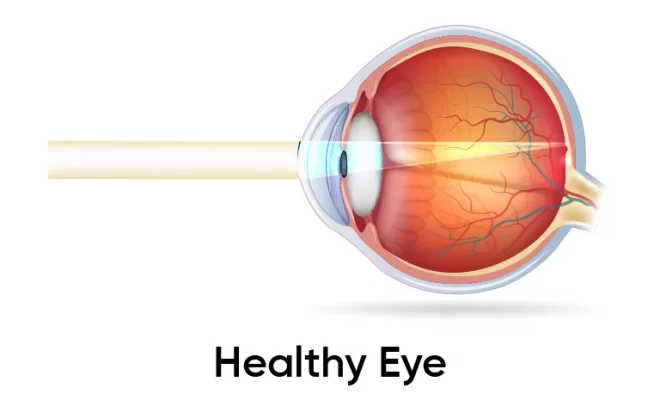Hyperopia (Farsightedness): Causes, Symptoms, and Treatment

You live a vibrant, lively, and energetic life. You do so by watching what you eat and exercising regularly. These are the hallmarks of good health. But not every part of your body responds to them in the same way. Your eyesight is one system in your body that is especially vulnerable to congenital diseases. There are a range of eye conditions that develop owing to age or genetics.
Hyperopia, or being farsighted, is one of them. This is a visual condition in which near objects look blurred. If you cannot properly see the letters and words in books, menus, or even your smartphone, you may have contracted hyperopia. The condition is also closely linked to being crossed eyed and experiencing eye strain. Hyperopia can sneak up on you because you will probably respond to it in an instinctive way. First of all, the blurriness may not be so bad in the beginning. And even when you cannot see things properly, you may hold them away from you. This is a natural way of dealing with the situation.
However, if you have had perfect vision all your life and you suddenly struggle to see what is in front of you, you should visit your doctor, who will then refer you to an optometrist. The latter can conduct an eye examination to determine whether you have hyperopia.
This sort of thing is best left to experienced professionals. Fortunately, there are a range of treatments available for the condition. The optometrist or ophthalmologist you work with can identify the treatment that is right for you. In most instances, your vision can be cleared up by using eyeglasses or contact lenses. Your physician may also be able to prescribe other treatments that will help improve your sight.
If you have been diagnosed with hyperopia, do not be troubled. Millions of people all over the world live with this condition. You will be especially vulnerable to it as you age. You may start experiencing your first symptoms around the age of forty and things will worsen as you get closer to your sixties.
One of the toughest things to get used to is wearing eyeglasses or assistance devices of any kind. Working with a physician will ensure you get the right eyewear. This should be the least intrusive option. Your physician will also help you transition to this phase of your life. They can give you tips and insights on how to store and wear your glasses or contact lenses.
Having hyperopia will not really interfere with your life. You will have to make a few adjustments, but these will not be hard to do. The most important thing is to have your eyes checked out if you find that your vision is blurry. It is better to visit your doctor sooner rather than later. An early diagnosis will give you more options. You should visit a qualified and highly experienced eye physician and you should get effective and reliable treatment. Nothing short of your future health and happiness is at stake.


